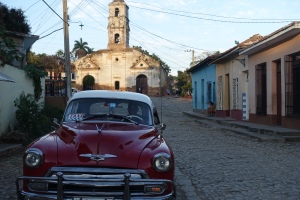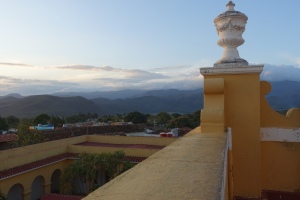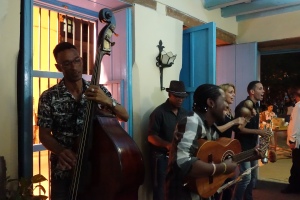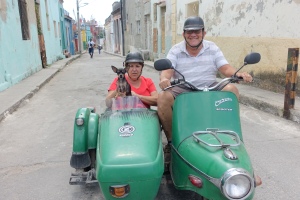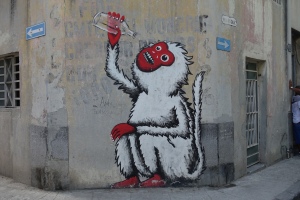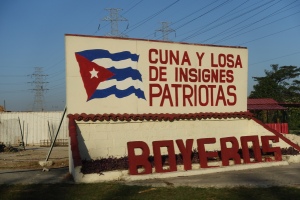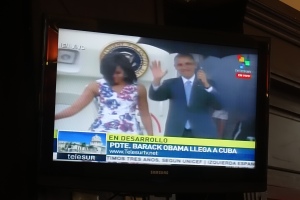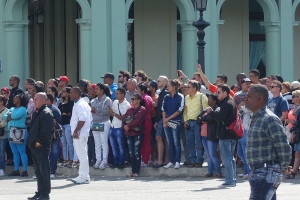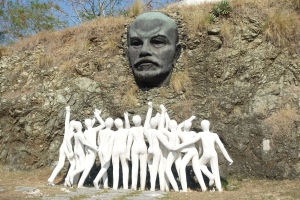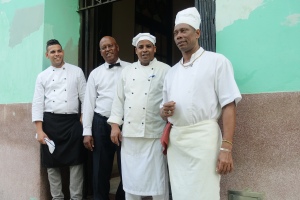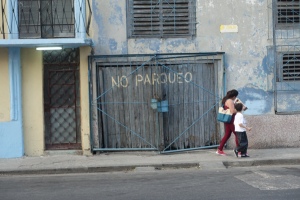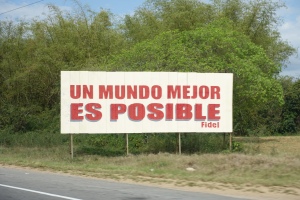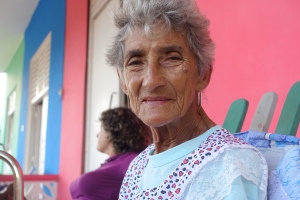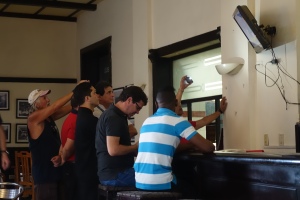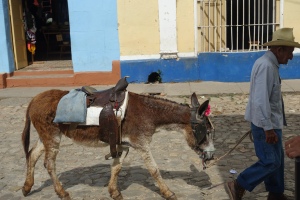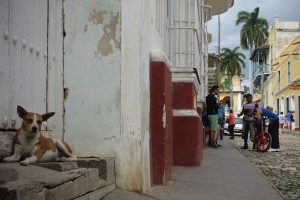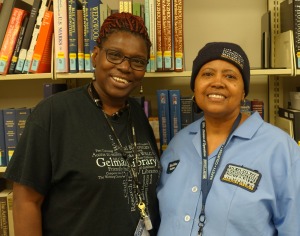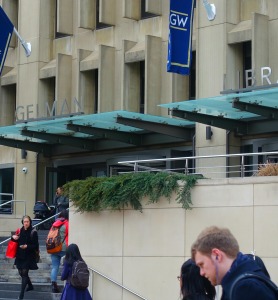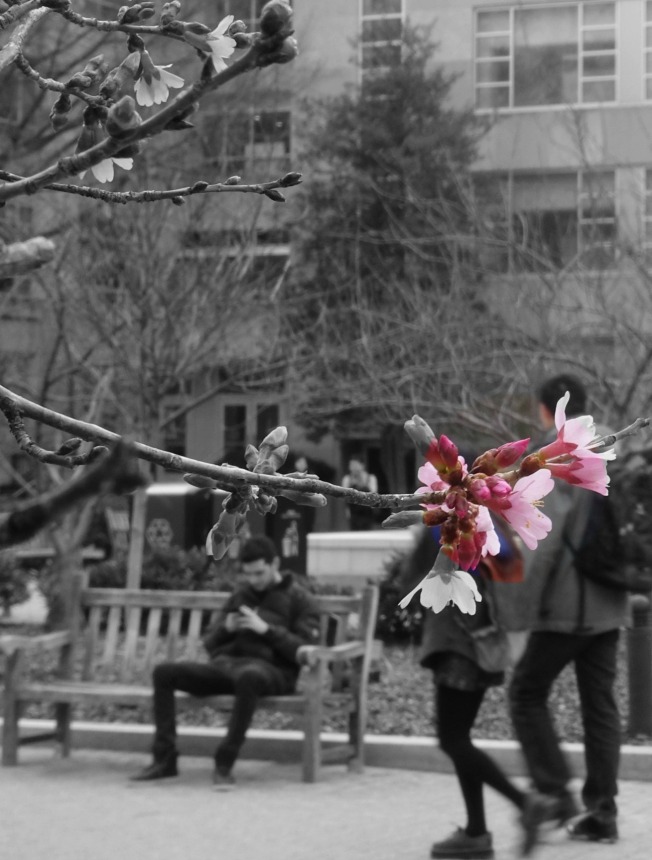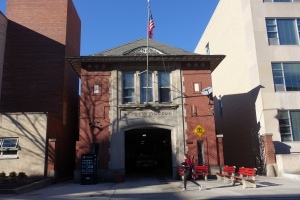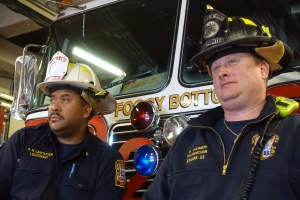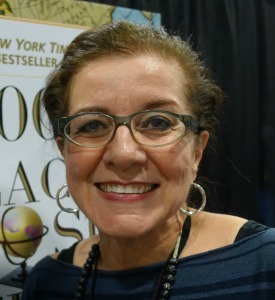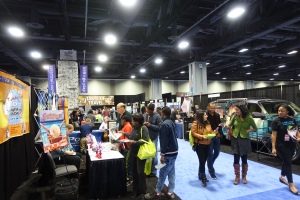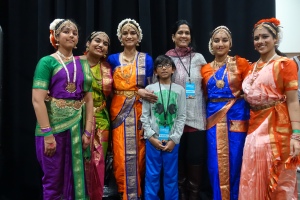Well this is it: my time at GW has come to an end. And how soon it ended! These past weeks, winter has not ceased howling, desperate to remain a while longer. And like a Shakespearian play, the weather has been a reliable barometer for mood around Foggy Bottom campus.With the onset of finals, the best adjective to describe most students’ faces would be howling. Not for me: I’m finished. Bring on Spring and Summer I say! So far the harvest of my academic labour has been pleasing. I got an A in Naval History, Hebrew Scriptures and a B+ in History for the American Presidency class I took. Spanish was a big disappointment, the reason being: I couldn’t take a test when I visited Cuba. Therefore, as the GW Language department views cultural immersion as a carnal sin, my final Spanish grade suffered as a result. My fluency in the language increased, and my grades went down. I guess that's just the way the cookie crumbles sometimes.
My favorite subject at GW was by far An Introduction to the Hebrew Scriptures with Professor Christopher Rolloston. Rolloston is a teaching genius. What is his secret? Repetition. It’s the way he does it that is so skillful. When he is approaching an important fact whilst speaking, he will suddenly pause, his inquisitive eyebrows will tilt slightly, and then the audience will respond accordingly: the first temple period ended in ______? (586/587 BCE). By the end of the semester everybody in the class knew all the books of the Old Testament, quite literally hundreds of names and significant dates. Moreover, students knew the context behind all the data. What is the point in learning facts and figures of yesteryear you may ask? The key to the future is the past. And Rolloston surely helped us to get a grip of the past. It was fascinating to learn how the Empires of neo-Assyria, Babylon, Medes, Persia and Greece were once mighty fortresses: the epitome of human strength. And they fell like a deck of cards. All of them. Which causes me to ask the question: how long will the USA last? It has only been the leading regional hegemon since 1945. That’s barely seventy years. The Kingdom of Persia, on the other hand, lasted for 220 years. Professor Rollston’s class truly helped put 2016 into the grander scheme of things!

My favorite Professor at the GW, Christopher Rollston.
I feel like I could write a thesis on my experience in America; there are so many interesting observations to make. The short version is that these past few months have been life changing, as clichéd as that sounds. Doing an exchange semester truly tests you on so many levels. You have to be patient as you become accustomed to the humour, habits, and mentality of a place very far from your own home town. DC is an amalgamation of countless cultures, yet somehow it all works. Although I'm sure the cold winters, support for the Nationals baseball team and a love of politics gossip all play there respective part, the thing that ultimately binds Americans is the continued belief that America is the Land of the Free and Home of the Brave. Racism exists in America, more than I realized. Poverty exists. Ignorance exists. But these qualities are outmatched by overwhelming generosity, altruism and optimism for a better tomorrow. Whilst there is no such thing as a perfect country, there can always be a better infrastructure that creates a more comfortable, more fair and considerate country. Progress is being made in that direction I believe. I sure hope the 2016 does not sour that progress. If Trump gets in it may do just that.
George Washington, that respectable man, once said that we should "labor to keep alive in your breast that little spark of celestial fire called conscience". Rather than return to Australia Americanized, I will return as someone whose 'conscience' still burns. America has a lot of glow and glitter, a lot of pomp and pageantry. It is not those things that have really spoken to me. Hollywood, the White House, New York City, these are all commendable achievements of man's might, but they can be dreadfully impersonal. What I will take with me when I go to Australia are the memories of the people I met. People, not places, are the important ones. Whether it be my professors, my class mates, room mates, work colleagues at Gelman library, church friends or the man sitting next to me on the metro who smells of old people and soap: each one left a lasting impression that has impacted upon me as a person. Thanks for the memories! And, as a certain chubby pig once said...

Choir rehearsals!

My fantastic teacher for U.S. Naval History- Harvard educated Professor Thomas Long.

"American cultural" evening dinner.

Margaret and John Gonglewski, the great hosts of the exchange dinner.

Los Tres Amigos! Sam Mayerson, Chris Chan and I, at the end of semester choir performance.

The wonderful Smith Family, thanks for all your support!

Gordon and Julie Thomas, a.k.a. my Virginian mum and dad!

Gelman Library selfies! -I worked there for 2 months. It was a great experience.
https://www.facebook.com/nakisa.azizi.5/videos/1140759305991493/
A sneaky moment at the library, late at night!










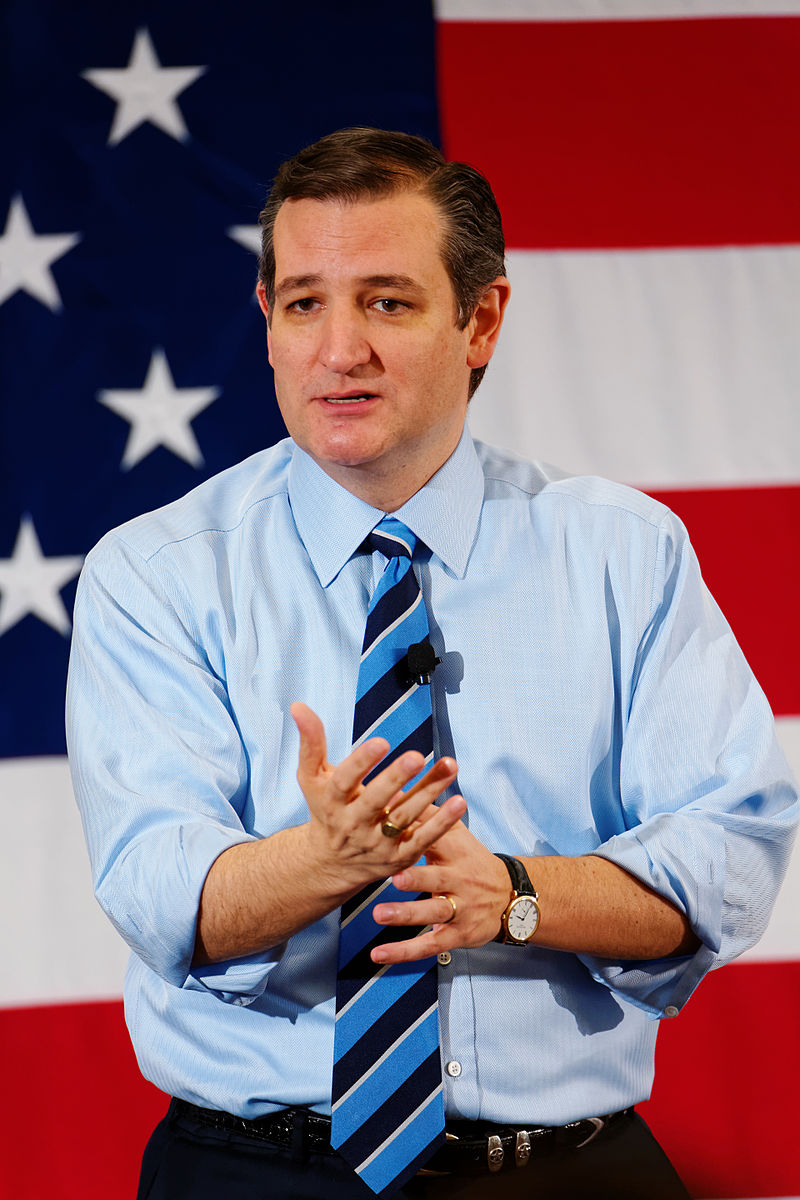


 The minute that Bernie Sanders came out of the closet as a 'Democratic Socialist' his campaign for President was over. Let's not forget, from 1945 until 1991 the U.S. was locked in a fierce ideological rivalry with Russia, then known as the U.S.S.R. The Cold War, in a nutshell, was Capitalists Vs. the Socialists. Day after day, year after year, the U.S. came to resent that word like off blue cheese. Socialism = the enemy. Although times have changed, some things never change and in the U.S. the meaning of socialism has retained its negative connotation. I actually think many of Bernie Sanders' ideas are great, better education and welfare systems for Americans alla Scandinavia or my own country Australia is fantastic. It doesn't matter how many wonderful plans and schemes he has to save America from itself, however, at the end of the day, by branding himself a 'Socialist', Sanders has as much chance at being the next President of America as Fidel Castro.
The minute that Bernie Sanders came out of the closet as a 'Democratic Socialist' his campaign for President was over. Let's not forget, from 1945 until 1991 the U.S. was locked in a fierce ideological rivalry with Russia, then known as the U.S.S.R. The Cold War, in a nutshell, was Capitalists Vs. the Socialists. Day after day, year after year, the U.S. came to resent that word like off blue cheese. Socialism = the enemy. Although times have changed, some things never change and in the U.S. the meaning of socialism has retained its negative connotation. I actually think many of Bernie Sanders' ideas are great, better education and welfare systems for Americans alla Scandinavia or my own country Australia is fantastic. It doesn't matter how many wonderful plans and schemes he has to save America from itself, however, at the end of the day, by branding himself a 'Socialist', Sanders has as much chance at being the next President of America as Fidel Castro.




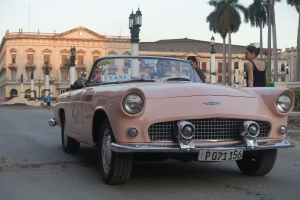
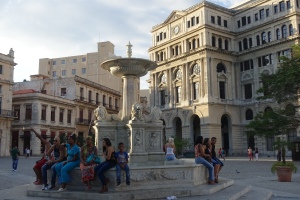
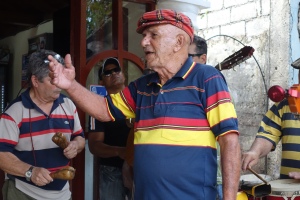
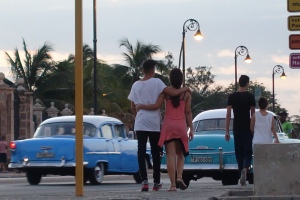 Love is in the air. And all the while you hear the enchanting sound of
Love is in the air. And all the while you hear the enchanting sound of 